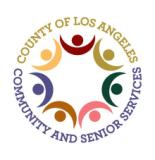What would you like to do today?
Programs and Services
Each year hundreds of thousands of older adults are abused, neglected, and exploited by family members and others.
What is Elder Abuse?
Elder abuse takes different forms.
Physical abuse
is defined as the use of physical force to willfully inflict pain or injury, or the inappropriate use of drugs and physical restraints.
Sexual abuse
is non-consensual sexual contact of any kind.
Psychological or emotional abuse
may include humiliating, intimidating, or threatening.
Financial exploitation
is the improper use of the person's resources without his or her consent, for someone else's benefit.
Neglect
is the failure of a caregiver to provide necessary goods or services to avoid physical harm or mental anguish-- abandonment, denial of food or health care.
Self-neglect
is characterized as the behavior of an elderly person that threatens his or her own health or safety.
How do I report suspected Elder Abuse?
Get help now - Report suspected cases of abuse
Anyone may make a confidential report if they know or suspect that an older adult or adult with a disability who lives in Los Angeles County is being abused. The 24-hour hotline is staffed by social workers who respond to calls and ask a series of questions to determine if an emergency response is required. If necessary, an Emergency Response Worker will be dispatched to make a home visit to investigate the report and to determine what services, if any, are needed. Adult protective services may include:
- • Arranging for the immediate protection of the adult.
- • Contacting the adult to assess his or her ability to protect his or her own interest and give informed consent.
- • Determining the ability of the adult to understand the nature of the protective service and his or her willingness to accept services.
- • Coordinating evaluations to determine or verify the adult's physical and mental status, if necessary.
- • Assist in arranging for appropriate services and alternative living arrangements.
- • Assisting in or arranging the medical, legal or other necessary services to prevent further abuse.
- • Providing advocacy to assure the adult's rights and entitlements are protected.
Related Links
